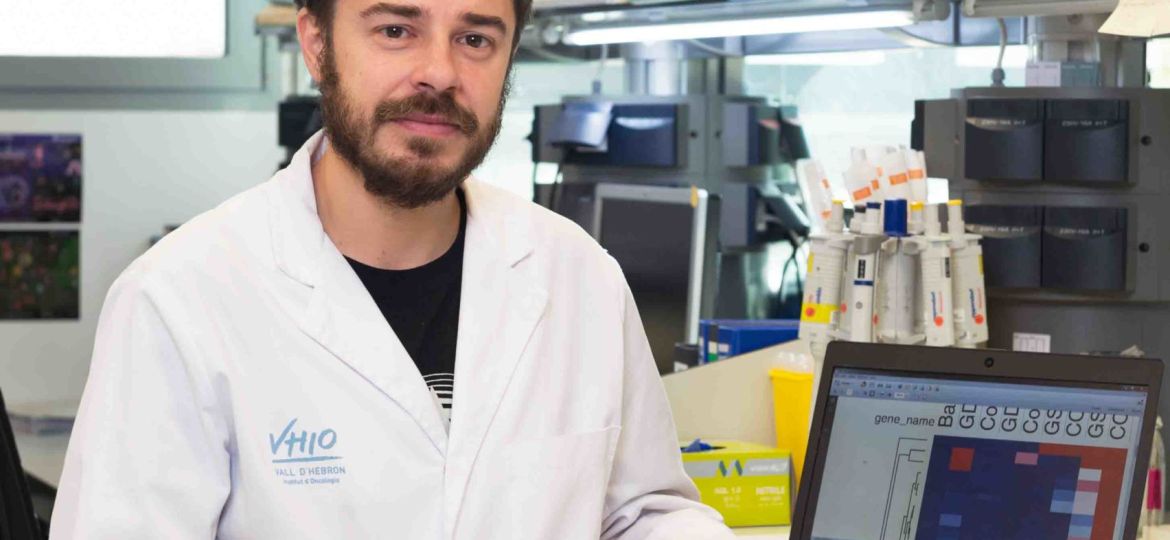
Gastrointestinal stromal tumors (GIST) are the most common human sarcoma, a malignant mesenchymal neoplasia that arises in the digestive system. Around 90% of them present gain-of-function mutations in KIT or PDGFRA receptors and ‘oncogenic addiction’ in the subsequent intracellular signaling that leads to cell proliferation.
Imatinib mesylate is the first-line treatment for this tumor type and is active against primary mutations in KIT and PDGFRA. Most patients respond to therapy for a period between 20-24 months, until progression ultimately occurs. Up to 90% of these tumors are composed of several imatinib-resistant subclones carrying different secondary mutations in KIT, mainly clustered in two regions of the kinase domain: the ATP-binding pocket and the activation loop.
While multiple KIT inhibitors are currently available, only sunitinib and regorafenib have been approved as second and third-line treatment, respectively. The median time to progression ranges from 4-6 months for both and higher toxicity is reported compared with imatinib.
Recently published in the British Journal of Cancer* and first-authored by César Serrano, Medical Oncologist and Clinical Investigator of VHIO’s Genitourinary, CNS Tumors, Sarcoma and Cancer of Unknown Primary Site Group directed by Joan Carles, this present study reports a novel combination therapy with a rapid and sequential alternation of sunitinib and regorafenib against imatinib-resistant GIST.
Co-led by Jonathan A. Fletcher, Dana-Farber Cancer Institute (Boston, USA), the researchers showed that KIT inhibitors, either approved or in clinical trials, are active against a specific profile of secondary mutations in KIT, but resistance to this therapy ultimately occurs due to the emergence of cross-resistant subpopulations.
Commenting for VHIO Communications, César Serrano said, “This is the first evidence of drug-specific activity between small molecule KIT-inhibitor monotherapies and a subset of the KIT secondary mutational spectrum. However, KIT secondary mutations still appear to be the main driver of tumor progression in imatinib-resistant GIST, and therapeutic strategies based on KIT therefore remain important in this particular setting.”
The team revealed that a patient treated with regorafenib developed two distinct and resistant lesions bearing secondary mutations in the ATP-binding pocket while another patient showed a complete response harboring a mutation in the activation loop. On the other hand, a GIST patient and an imatinib-resistant GIST patient-derived xenograft presenting mutations in the ATP-binding pocket responded to sunitinib, but not to regorafenib, suggesting that these two KIT inhibitors are complementary in the treatment of imatinib-resistant GIST and could be exploited as a pairing in the clinic.
However, these two drugs have overlapping side effects that could be exacerbated in combination. César and colleagues showed that by alternating the inhibitors drug-drug interactions were avoided, therapy pressure on the heterogeneous tumor was maintained, and the selection and emergence of resistant subclones minimized.
“This study shows that rapid alternation of sunitinib and regorafenib more effectively blocks the growth of polyclonal imatinib-resistant subclones in vitro. Since both agents have already been approved for this tumor type, we are now conducting a phase I clinical trial alternating 3 days of sunitinib followed by 4 days of regorafenib, results of which we hope to communicate shortly. Rapid rotation of drugs may overcome the heterogeneity of resistance mechanisms while likely minimizing the adverse events from combinations of anti-cancer medicines,” concluded César.
Resistance to anti-cancer therapies is one of the major challenges currently hampering collective efforts aimed at solving cancer sooner. The identification of more effective novel therapies matched to the specificities of individual patients – either as mono or combinatorial strategies – is central to improving treatment outcomes.
This study has mainly been supported by an ASCO Young Investigator Award, a Spanish Society of Medical Oncology (SEOM) Translational Award, as well as funding from FERO Foundation.
###
*Serrano C, Mariño-Enríquez A, Tao DL, Ketzer J, Eilers G, Zhu M, Yu C, Mannan AM, Rubin BP, Demetri GD, Raut CP, Presnell A, McKinley A, Heinrich MC, Czaplinski JT, Sicinska E, Bauer S, George S, Fletcher JA. Complementary activity of tyrosine kinase inhibitors against secondary kit mutations in imatinib-resistant gastrointestinal stromal tumours. Br J Cancer. 2019 Feb 22. doi: 10.1038/s41416-019-0389-6.








